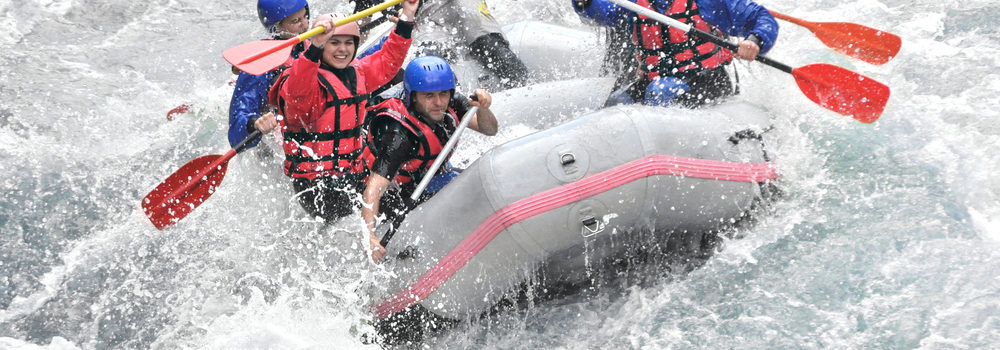January 13, 2017

Alaska draws many excited visitors all during the year, but especially in the summer months. Are you planning your Alaska summer vacation? We hope so! Alaska is a magnificent and beautiful state with many opportunities for adventure. White water rafting in Alaska is an exhilarating and unforgettable experience, but it can also be dangerous. Here are some tips to making sure your adventure is safe and memorable in an amazing way.
Tip #1: Only choose a licensed, professional rafting outfitter!
Make sure the rafting company you choose is one that will be utmostly concerned with your experience and safety. It is a good idea to check out their website and then ask them specific questions. For example: How long have they been in business? How long have their guides been doing this? Have their guides had any recognized training?
Tip #2: Wear the right gear!
The gear provided by the outfitter must be worn and must be worn correctly. This gear should at least include a life jacket and a helmet. Both much be in place and be buckled correctly to be effective. Additional gear can be helpful in rides earlier in the spring when it is colder. This gear could include a wetsuit, splash jackets, and river shoes. A reputable outfitter will provide or rent the gear to you.
Tip #3: Hold your paddle correctly
Making sure you are holding your paddle properly might seem obvious, but in the excitement of the rapids, it can be easy to forget. One of your hands should always be on the shaft, at the base of the paddle. Your other hand must ALWAYS remain on the other end of the ‘T” grip. An uncontrolled “T” grip can be a dangerous thing causing black eyes and even knocked out teeth! Your hand can soften the blow if it should happen, so remember to keep a hold of the paddle!
Of course, we hope that you have a safe and exciting adventure and nothing serious happens. However, if something should happen, keep in mind that because it happened on or in water, there are different laws that apply. If you have a serious injury while rafting, we suggest contacting an attorney who is experienced with which type of law applies: maritime law or civil tort law.
